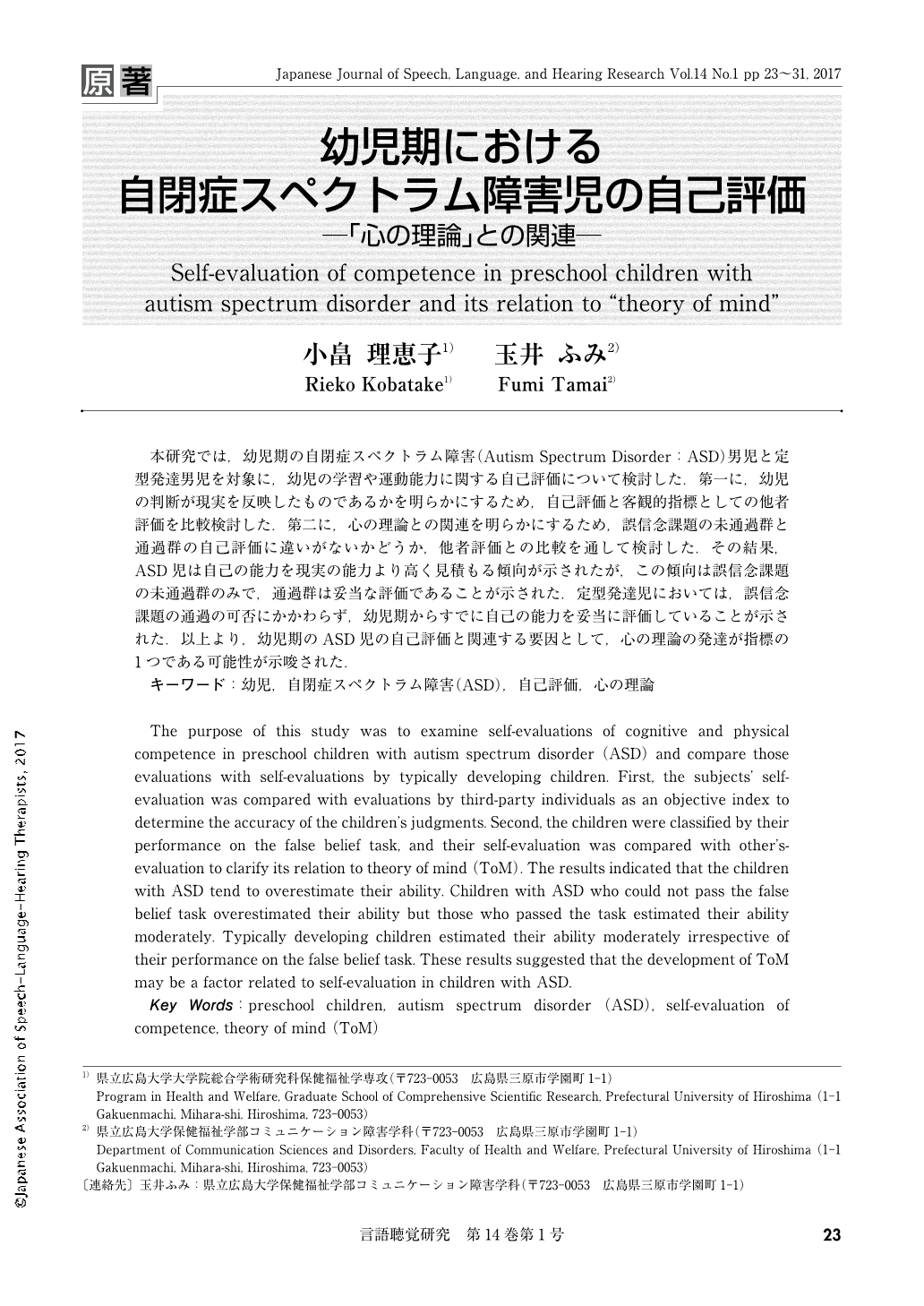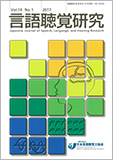Japanese
English
- 有料閲覧
- Abstract 文献概要
- 1ページ目 Look Inside
- 参考文献 Reference
本研究では,幼児期の自閉症スペクトラム障害(Autism Spectrum Disorder:ASD)男児と定型発達男児を対象に,幼児の学習や運動能力に関する自己評価について検討した.第一に,幼児の判断が現実を反映したものであるかを明らかにするため,自己評価と客観的指標としての他者評価を比較検討した.第二に,心の理論との関連を明らかにするため,誤信念課題の未通過群と通過群の自己評価に違いがないかどうか,他者評価との比較を通して検討した.その結果,ASD児は自己の能力を現実の能力より高く見積もる傾向が示されたが,この傾向は誤信念課題の未通過群のみで,通過群は妥当な評価であることが示された.定型発達児においては,誤信念課題の通過の可否にかかわらず,幼児期からすでに自己の能力を妥当に評価していることが示された.以上より,幼児期のASD児の自己評価と関連する要因として,心の理論の発達が指標の1つである可能性が示唆された.
The purpose of this study was to examine self-evaluations of cognitive and physical competence in preschool children with autism spectrum disorder (ASD) and compare those evaluations with self-evaluations by typically developing children. First, the subjects' self-evaluation was compared with evaluations by third-party individuals as an objective index to determine the accuracy of the children's judgments. Second, the children were classified by their performance on the false belief task, and their self-evaluation was compared with other's-evaluation to clarify its relation to theory of mind (ToM). The results indicated that the children with ASD tend to overestimate their ability. Children with ASD who could not pass the false belief task overestimated their ability but those who passed the task estimated their ability moderately. Typically developing children estimated their ability moderately irrespective of their performance on the false belief task. These results suggested that the development of ToM may be a factor related to self-evaluation in children with ASD.

Copyright © 2017, Japanese Association of Speech-Language-Hearing Therapists. All rights reserved.


